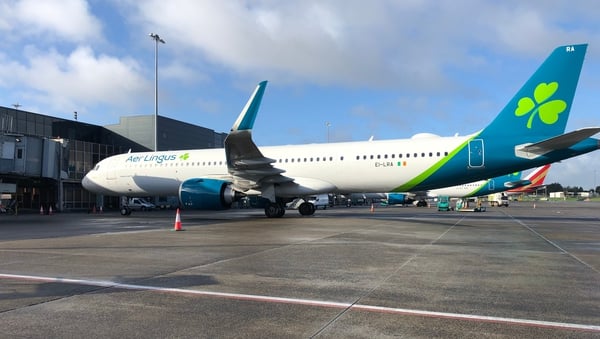Thirty-five nurses at Dublin's Mater Hospital are trapped in a "visa limbo" due to administrative delays in the work permit system, according to nursing unions.
The Irish Nurses and Midwives Organisation (INMO) and SIPTU said the staff in question have been warned that they may not be able to work in Ireland any longer, as they have not received crucial documents from a Government department.
It is unclear how many other people and sectors are affected by the delays in processing work permits and visas.
The claims come as the Psychiatric Nurses Association announced that its 6,000 members have voted by 95% to take industrial action up to and including strike action in the New Year because of shortages of nurses in the health service.
The 37,000 strong INMO will reveal its ballot result tomorrow.
It has already warned of potential 24-hour stoppages, though actual industrial action is unlikely before mid-January at the earliest.
The INMO said the 35 Mater nurses, many of whom have been working here for several years, provide specialised life-saving care.
However, they may not be able to work in Irish hospitals during the pressurised period this winter, as they have not received official letters confirming that their skills are needed.
The union blamed administrative delays in the Department of Business, Enterprise and Innovation and the Irish Naturalisation and Immigration Service.
INMO Industrial Relations Officer Albert Murphy said it was deeply unfair to put nurses into a visa limbo so close to Christmas, adding that they deserved the certainty that they will still have jobs.
He said that while there was a huge shortage of nurses in Ireland, it seems highly skilled staff were being locked out due to what he called a bureaucratic backlog.
He said the Government's left hand did not know what the right hand was doing, as while the Department of Health was spending millions on agency nurses and overseas recruitment to plug staffing gaps, the Department of Business, Enterprise and Innovation was forcing qualified nurses out.
He urged Minister for Health Simon Harris to contact the Minister for Business Enterprise and Innovation and sort out the mess urgently.
SIPTU Organiser John McCamley echoed those calls, and described removing nursing staff from critical areas because of backlogs as an "unnecessary self-inflicted wound".
In a statement, the Department of Business Enterprise and Innovation acknowledged that the current processing time of 12 weeks for a support letter for a Stamp 4 immigration is "not acceptable".
It said that by the end of November, the Employment Permits section had received 15,500 applications this year - up 27% on the same period last year - resulting in longer processing times.
In November alone, the Employment Permits section decided on more permit applications (1,678) than during any month in the past ten years, of which 1,504 were approved.
The current waiting time for a standard application is 12 weeks, down from a previous peak of 16 weeks.
For the "Trusted Partner" category, the delay has fallen from a peak of seven weeks to five.
The department said that while these processing times compared favorably internationally, they are below the department's target of two weeks for Trusted Partners, and four weeks for standard applications.
It is taking steps to rectify the situation, and hopes to have it resolved by the end of January 2019.
It has assigned additional staff to the Employment Permits section, with a fast track training programme, as well as introducing operational changes, streamlined processes and ICT solutions.






